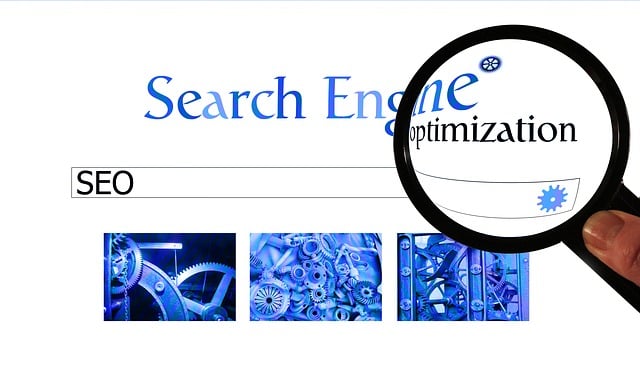In today's competitive online retail landscape, an efficient ecommerce search engine powered by AI is crucial for success. It transforms browsing into a satisfying experience with instant, relevant results tailored to customer intent, driving conversions and exploration. Advanced analytics provide insights into consumer behavior, enabling retailers to optimize strategies. AI-driven search engines use semantic search, machine learning, personalized recommendations, and visual search to enhance user experiences, boost sales growth, and elevate customer satisfaction by understanding natural language queries and contextual suggestions. Integrating AI plugins improves the shopping experience, increasing relevance and speed of product discovery, which can significantly boost sales and reduce bounce rates.
In today’s digital landscape, an effective ecommerce search engine is no longer a luxury—it’s a necessity. With millions of products vying for attention, shoppers expect instant, accurate results. AI-powered tools are revolutionizing how online stores handle search, offering advanced capabilities like natural language processing and semantic understanding. This article explores the importance of robust ecommerce search engines, delves into various AI-driven plugins and apps, and provides best practices for implementation to elevate your online store’s search functionality.
- Understanding Ecommerce Search Engine Importance
- Types of AI-Powered Ecommerce Search Tools
- Integrating AI Plugins and Apps for Enhanced Search
- Benefits and Best Practices for Implementing AI Search
Understanding Ecommerce Search Engine Importance

In the dynamic landscape of online retail, an effective ecommerce search engine is not just a nice-to-have feature—it’s a competitive necessity. Customers today expect instant, accurate, and personalized results when browsing through vast product catalogs. An efficient search engine empowers shoppers to quickly find what they’re looking for, enhancing user experience and increasing the likelihood of conversions. By understanding customer intent and providing relevant suggestions, ecommerce search engines foster a sense of discovery, encouraging users to explore more products and ultimately boost sales.
Moreover, an advanced search tool offers businesses valuable insights into consumer behavior and preferences. It can analyze search patterns, popular queries, and product interactions to refine inventory management, optimize pricing strategies, and tailor marketing campaigns. This data-driven approach allows retailers to stay agile in a competitive market, ensuring their offerings remain aligned with customer demands and trends.
Types of AI-Powered Ecommerce Search Tools

In the dynamic landscape of ecommerce, AI-powered search tools have emerged as game-changers, revolutionizing how businesses and consumers interact with online stores. These advanced plugins and apps go beyond traditional keyword searches, employing sophisticated algorithms to deliver more accurate and relevant results. By understanding customer intent and contextual cues, they enhance user experience, boosting sales and customer satisfaction.
There are various types of AI ecommerce search engines available, each offering unique features. Some focus on semantic search, allowing users to find products using natural language queries. Others incorporate machine learning to adapt and improve search accuracy over time. Personalized search results, based on user history and preferences, are yet another popular feature. Additionally, visual search tools enable customers to find items by uploading images, opening up a new dimension in product discovery.
Integrating AI Plugins and Apps for Enhanced Search

Integrating AI-powered plugins and apps into your e-commerce platform can significantly transform the shopping experience for your customers. These advanced tools leverage machine learning algorithms to understand customer intent, enabling more accurate and relevant search results. By analyzing user behavior, past purchases, and even implicit signals, AI search engines can deliver personalized product recommendations, ensuring shoppers find what they’re looking for faster and easier.
With AI integration, e-commerce platforms can go beyond basic keyword matching. They can interpret natural language queries, handle synonyms and misspellings, and provide contextual suggestions. This level of sophistication improves user satisfaction and drives conversions by making the search process more intuitive and efficient. Moreover, AI plugins often offer features like semantic search, which goes beyond surface-level keywords to understand the underlying meaning behind customer queries.
Benefits and Best Practices for Implementing AI Search

Implementing AI-powered search tools in e-commerce platforms offers a myriad of benefits that enhance both customer experience and business performance. These advanced search engines utilize natural language processing (NLP) and machine learning algorithms to understand user queries more accurately, providing relevant product suggestions even when customers don’t know the exact product names or specifications. This can significantly increase sales by guiding shoppers to desired products faster and reducing bounce rates.
Best practices for integrating AI search include ensuring high-quality data feeding into the system, as accuracy relies on comprehensive and well-structured product information. Regular updates are also crucial to keep search results relevant, aligning with the latest product offerings and trends. Additionally, personalizing search experiences based on user behavior, browsing history, and preferences can drive engagement and conversions. User feedback mechanisms should be in place to continuously refine AI models, ensuring they adapt to evolving customer needs and language patterns.
In today’s digital landscape, an efficient ecommerce search engine is pivotal for driving sales and enhancing user experiences. By integrating AI-powered tools and plugins, businesses can significantly improve search functionality, offering precise and relevant product results. This article has explored various types of AI search solutions, outlined integration benefits, and provided best practices for implementation. Embracing these advancements allows ecommerce retailers to stay competitive, ensuring their platforms become vibrant hubs where users can effortlessly discover desired products.
